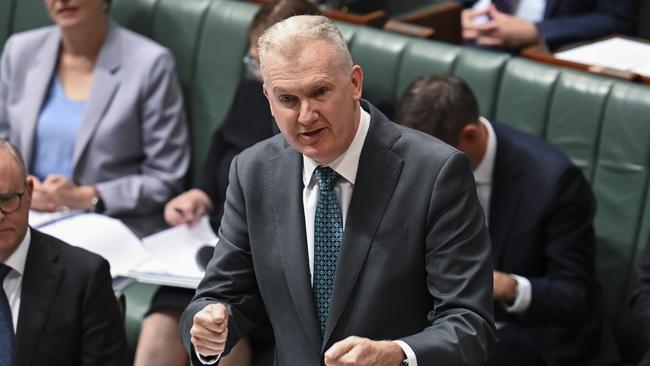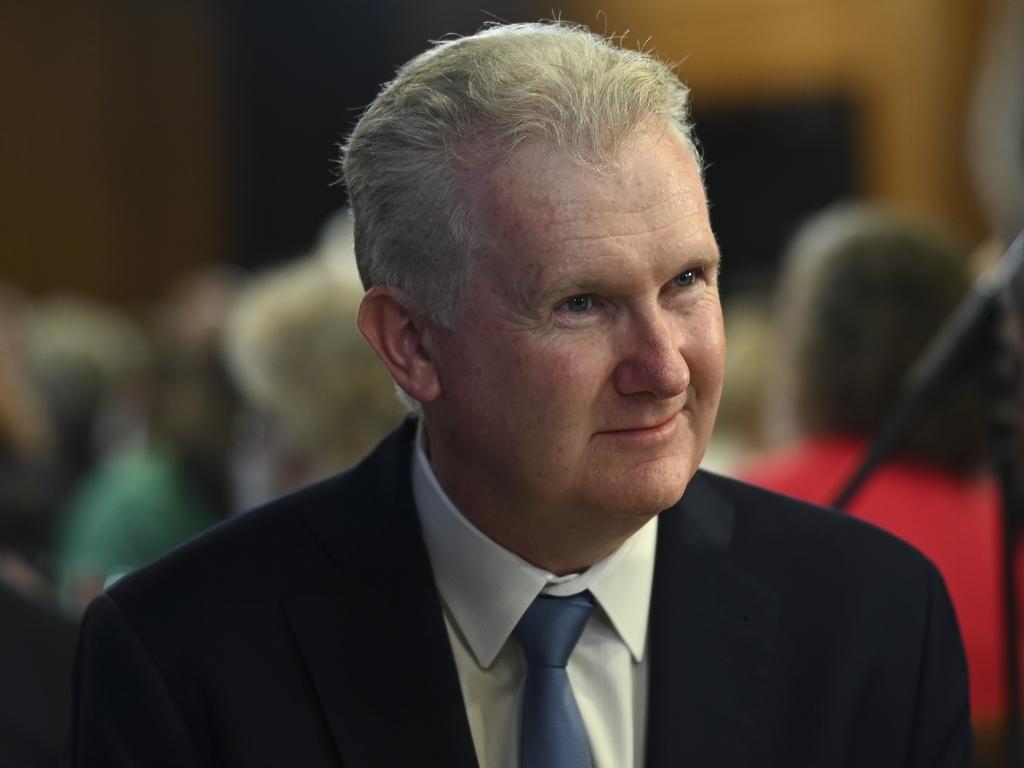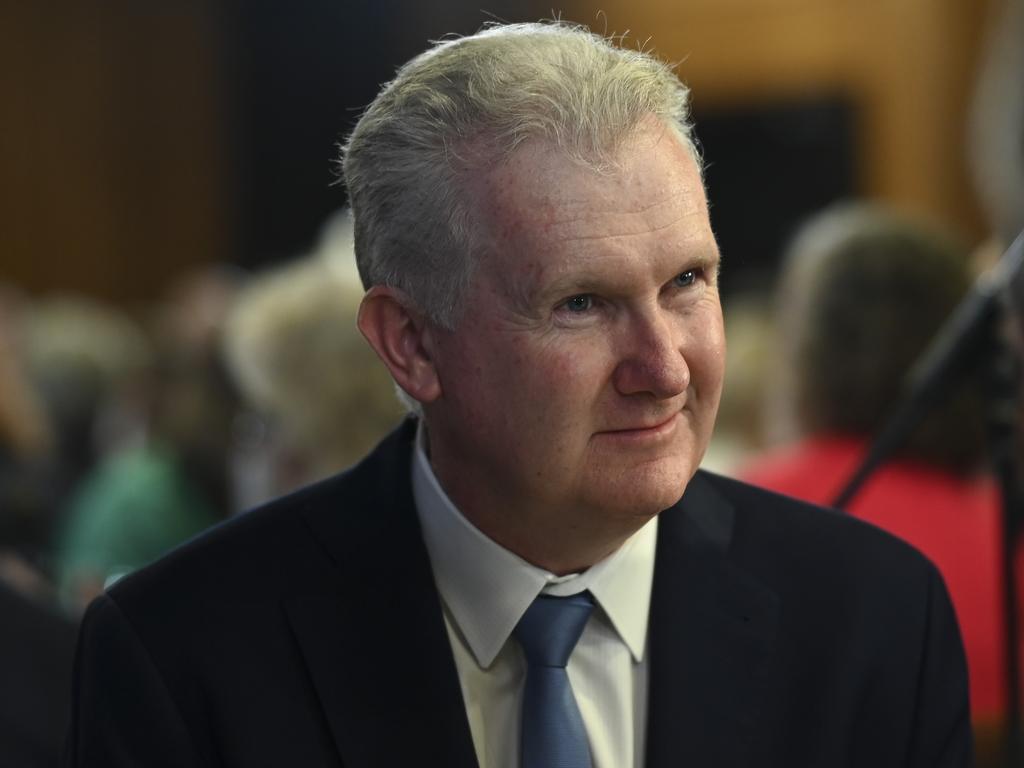IR breakthrough as Tony Burke softens on right to disconnect
Employers will no longer risk fines if they breach new right to disconnect laws.

Proposed right to disconnect laws would be softened with employers no longer at risk of fines for contacting workers after hours under a government compromise that moves Labor closer to securing Senate crossbench support for its industrial relations bill.
Following concerns raised by key Senate crossbencher David Pocock, Workplace Relations Minister Tony Burke said one option was to drop the threat of employer fines while ensuring workers were not penalised if they ignored after hours contact from their boss.
Employers welcomed the shift which they said represented giving workers a “right to ignore” their employer while not subjecting businesses to a new penalty regime.
The compromise goes a significant way to addressing crossbench concern about the proposal and a deal over the wider bill could be done as early as Wednesday.
Sources said Senator Pocock was pushing for one more change to the right to disconnect laws to make them, in his view, workable, while he also wants amendments to the gig worker changes.
On the right to disconnect, Mr Burke said it was completely reasonable for an employer to send emails after-hours or to contact workers about shifts.
He said a “pretty good model” was “where the employer can reach out, but if you (the worker) don’t respond because it’s not your paid time you’ve got a guarantee that you can’t be punished for it”.
“One of the ways, instead of the fines, of doing it is simply having an absolute ban on there being a penalty on the worker for disengaging,” Mr Burke told the ABC’s Patricia Karvelas on Tuesday.
“So if a worker disconnects, if they decide they are not going to have their phone with them, if they decide they’re not going to be checking their emails, then absolutely no penalty can be brought against them.
“And that sort of protection would give you a way of doing it without fines on the employer.”
Business Council of Australia chief executive Bran Black said the BCA had been pushing for amendments to the right to disconnect proposal.
“We need to see detail from the government, however a model which means a worker can switch off and not be penalised aligns with the balanced, middle ground we have argued for and is a better approach than fining companies for undertaking their normal business activities,” Mr Black said.
In a joint statement, the Australian Chamber of Commerce and Industry, along with its state and territory chambers, urged the Senate to “carefully reconsider the implications of this rushed and flawed industrial relations legislation”.
“Our members employ millions of Australians across regions, towns, cities, and every sector. Most of our members are small businesses that contribute so much, and we will
burden them with additional constraints and costs,” they said.
“These costs will be passed on to the community or result in the loss of jobs. Or both. A one-size-fits-all approach to the casual labour market, in an economy that is already
short of essential skills, could not come at a worse time. It will negatively affect those workers who welcome flexibility in their lives, and at a time when flexibility and skill-
share is a rising economic saviour.”
Mr Burke said the employer fear campaign on the casual changes was divorced from reality.
“Most casuals want to be casuals, and nothing will change for them,” he said.
He said if an employer intended to continue to roster a casual worker “in the exact way that they would roster a permanent, then you should be able to say, “Look, I’d rather get the security of being a permanent worker”.








To join the conversation, please log in. Don't have an account? Register
Join the conversation, you are commenting as Logout